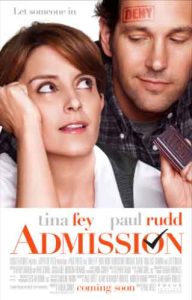Hey there members of the Class of ’24/‘25 (for Juniors and their parents),
Greetings from Gary the College Guy!
Here’s the first of what will become a regular newsletter I’ll be sending for your elucidation – I call them “The College Guy Rants”… Get it? ?
This one is going out for you to groove on as you attain warp speed in this your junior year and it’s about doing some college visits – you can start this coming three day weekend! As always I’ll drop some suggestions, reminders, and some references to articles I think you’ll find interesting. If you take the time to read these things I’ll wager you’ll be wiser and better prepared for the journey that lies ahead.
If my writings get you excited or intrigued about the college selection, application and financial aid (yes parents, I’ll write about that as well) processes, that’s good – that’s my intention. But if they make you angry and resentful and more aware that when it comes to selective college admissions, “The Emperor Has No Clothes”, that’s even better, cause that’s my mission as well. When it comes to admissions at the 100 to 150 selective colleges (out of the 2,400 accredited United States four year Universities and Colleges), I’ll wager that much of what you think you know….is wrong!
If you’d like to email or phone me (see my signature way down below) with questions or comments or concerns I promise a speedy reply! There’s no charge for schmoozing by email or phone conversations – talk is cheap!
If along the way you want to find out more about my services which people actually pay me for, well don’t be bashful – go ahead and ask.
 |
Read this article from a recent Atlantic Magazine: “The College Admissions Process is Completely Broken” |
 |
Watch this 2013 Tina Fey – Paul Rudd romcom movie (with your parents – there’s nothing embarrassing!) called “Admission”. Trust me – you’ll understand why I’m suggesting it when you see it! |
One last thing before I get on to the topic of visiting colleges. If you find these emails useful, I would appreciate it if you would forward them on to your friends and acquaintances whom you think might also want to read them. I try to make these things chock full of information and advice as well as fun to read, and they’re the primary way (next to word of mouth) that I get the word out about my services. And you’re not going to hear most of the stuff I present from your guidance counselor or other consultants who just-don’t-get-it.
Let’s get going, shall we?
Let’s start with the basics. Why visit colleges? It’s not a dumb question, because most folks visit colleges for the wrong reasons. While most will tell you that college visits are of extreme importance, I’m not one of them. The mood you’re in, the weather, the personality of the tour guide and whether or not you’d rather be home doing that Calculus homework due tomorrow will all impact what you think about any given school you traipse around over a two/three hour time span than will the actual characteristics of the school!
PLUS a visit costs time and money, and at best gives only a superficial impression (can’t judge a book by it’s cover…., ya know?). The notion that you have to visit every college junior is thinking of applying to is bad thinking. Visit ‘em in March/April of senior year after you’ve been accepted, if at all, and save some money and time now.
But I do think you should visit some schools, and you should get going this coming three day Veterans Day weekend, and here’s why:
You need to familiarize yourself with what a college/university is all about.Simple as that.
See, if you need to buy shoes or a coat next week, you pretty much have the process down cause you’ve done it before, and you’ve grown up wearing coats and shoes.
Well you need to “buy” a college – actually if you take my advice you need to select six to dozen of ‘em by next November 1st – and you’ve got, um, 2,400 to choose from last time I checked.
So I think it’s a good idea to get yourself on to some real college campuses, so all of the mumbo jumbo talk about choosing colleges you’re going to hear and read about will start making some sense.
I think that what’s important at this stage of the game is NOT to try and see all the schools you think you’re most interested in applying to, but rather to visit a sampling of different types of campuses close by so you can check out first hand what this college thing is all about. Heck, most juniors I meet with don’t have a clue about where they want to apply yet, and that’s fine.
Some of you may be planning to visit campuses over next summer. That’s not an optimum time to visit schools because at that time of year you’re seeing a ghost town – the physical plant only. Unless it’s a major University with a full blown summer session, those kids you see walking around will likely be high school (and younger) dudes attending summer sport camps and academic programs. So three day weekends over the school year, as well as spring break is an optimum time for visits.
If you’re traveling with family or friends this winter and spring, consider that just about wherever you go, however you get there, there will be cool schools nearby or on the way.
So again let me emphasize that your visits for now are just PRELIMINARY and EXPLORATORY, so keep it mellow and just cruise a few schools that are easy to get to. It’s not so important to visit any particular school as it is to experience a variety of campuses:
- check out a small and a large school;
- an urban and a rural school;
- a public school (state university) and a private one;
- a selective (reach) school and a non-selective (safety) one.
After you’ve seen some various types you’ll be in a better position to make judgments about schools from the propaganda you’ll receive from them, as well as information from the books I’ll tell you to get your hands on, and off the internet.
Here’s how you go about it:
First, go on line to any school’s web page and link to “admissions” and then “visit” to register for a Campus Tour and an Information Session. Instructions for scheduling are on all colleges’ web pages, and most have nifty automatic registration options linked to a calendar of when tours and information sessions are offered. If you can’t find what you’re looking for, call the admissions office or hit me with a text and I’ll find it for you. If you’ve got Chutzpah (and ya should!) request an interview from admissions if one is offered. Now I know what you’re thinking: “I’M NOT READY!!!!” (or is it “I’m not worthy!”?). Please don’t be uptight when you hear the word ‘interview’. Any sit down you have this early in the process will just be an informational interview, a chance for you to ask questions and to get practice in an interview setting. Only a handful of colleges (the super-selective ones) require EVALUATIVE interviews – and those will take place next fall and winter AFTER you’ve applied. Nevertheless, I think it’s great to take some interviews now for the experience of learning how to feel comfortable answering AND ASKING questions. Think of ’em as dry runs – and don’t sweat ’em!
BTW, not every school will give you an interview – they take up staff time – but if you’re assertive and ask the right way, many will schedule you.
Third, leave time (an hour!) for doing something I call going “FREE FALL” after the tour and info session. This means to SPLIT UP – student from parent, and also student from friend if you’re visiting with a buddy – and go wandering around campus with a knapsack so you look like, dare I say it, a college student. Make it a game as you try and blend in: see if someone mistakes you for a college student and asks you for directions (one point) or where the happening party is tonight (five points!) or for a date (you win!!! ?). Find a comfy place to get some face time and hang out. Plan to meet back at the car or the admissions office in an hour or so.
The idea here is to get yourself AWAY from the comfort and familiarity of parents and friends, and to actually put yourself in the head set of thinking “could I see myself here as a student?!” I often hear from students that going ‘freefall’ was the best part of their visit – sometimes very groovy things happen! So leave time for this!!
So to review: every visit should include at a MINIMUM these three components: CAMPUS TOUR, INFORMATION SESSION, and FREE FALL. Add in an interview if you can get one.
- sitting in on a class or two;
- spending an overnight in a dorm;
- meeting with a professor or coach or theater or band director (as befits your interests);
- meeting up with a student you know who goes to the school.
Students and parents can call admissions to request help in setting any and all of these things up. Remember: all schools are businesses, and their objective is to get you to apply and choose them. Thus the friendly folks in the admissions office are there to convince you why you should go there, so use them to help you create what I call a “substantive” visit!
I recommend visiting no more than two schools/day. Don’t try to cram in a third – you’ll feel rushed and you’ll forget stuff. Plan on taking a minimum of 2 – 3 hours per campus. Use your phone or a camera to take some shots on each campus to help you remember which place had the new library, which the awesome climbing wall. After the tour and info session/interview, go have lunch or a snack in the main cafeteria. Hang around in a populated area during a class break so you can see some action. And don’t forget to pick up an issue of the campus newspaper and read it – lot’s of good non-propaganda material in there to feast upon.
As always, feel free to check with me before you travel if you want suggestions or ideas for schools to go see, or questions you can ask during interviews, or help setting up meetings with professors, coaches, other faculty.
Okay, gas up the tank, pick out some good CDs (I’m listening to nothing but the Dead these days – I admit it, I’m a dinosaur – good driving AND college music!) and don’t wear the jeans with the grass stains on ’em!
Go have fun!
From your traveling trainer, your wandering wizard, your meandering mentor, your didactic doyen (of all things college related, and baseball related, and Bob Dylan related, holy cow somebody stop me…..!)
—
College Placement Services
assistance with all aspects of the college search, selection, application and financial aid process.